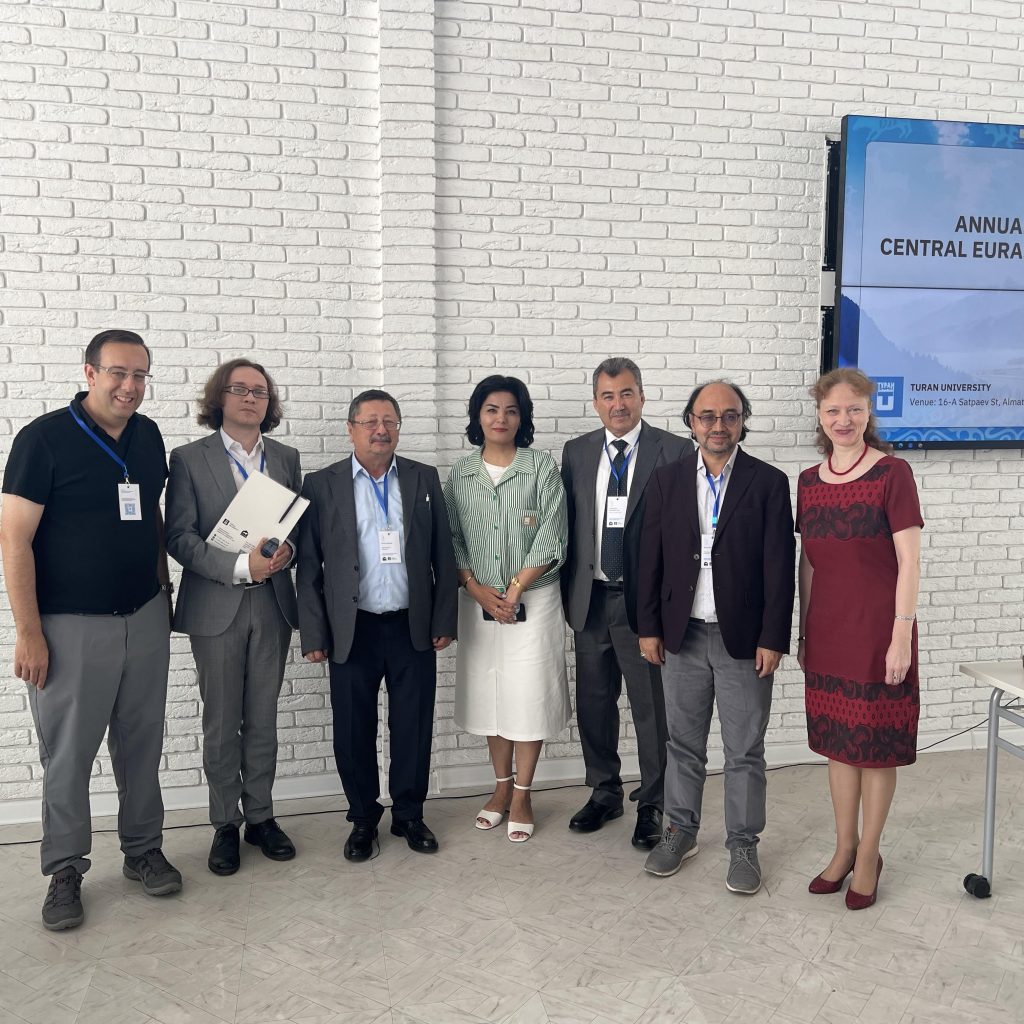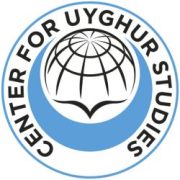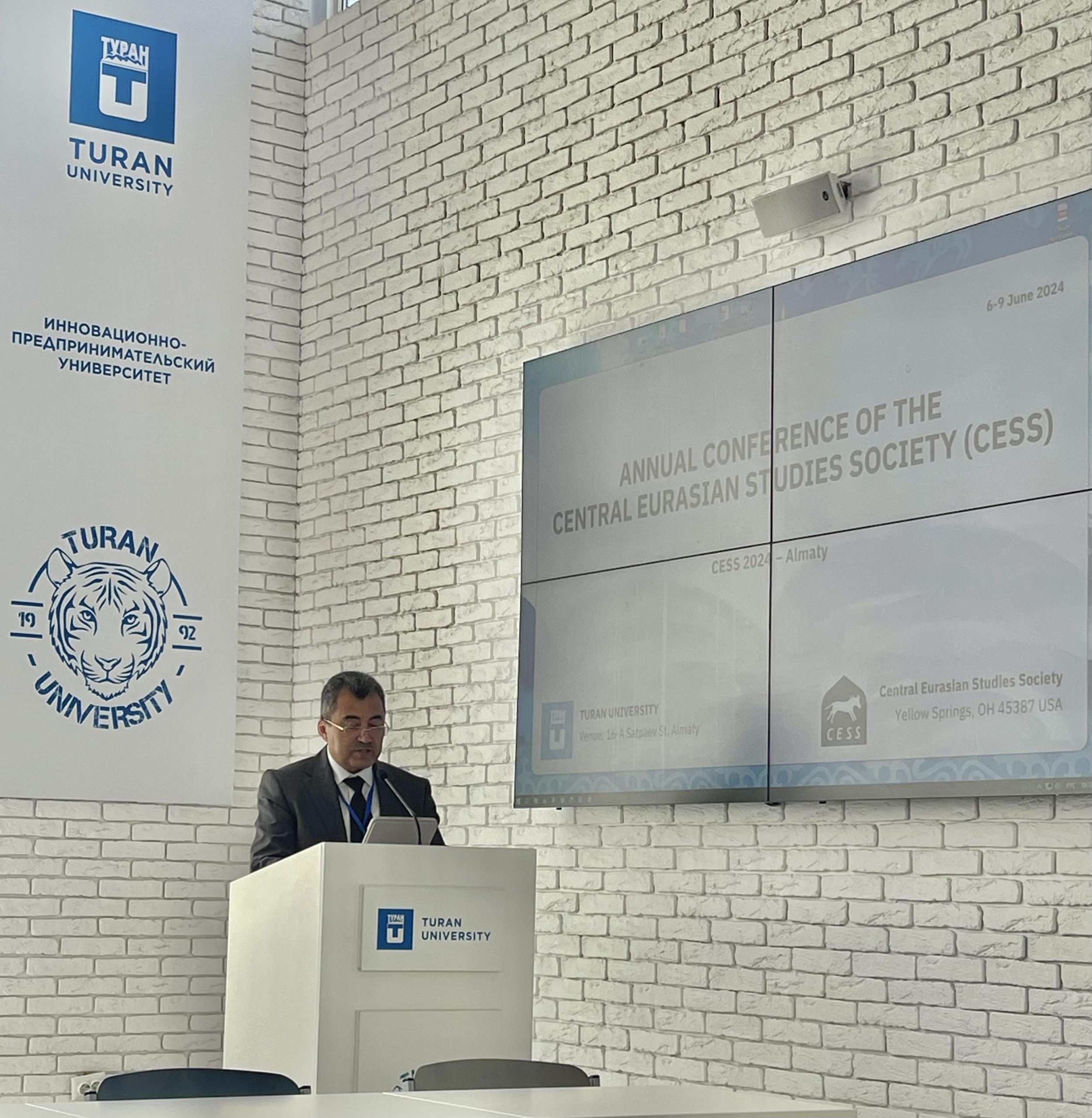For more than seven decades, the Uyghur people have been undergoing immense persecution under the PRC rule. Today, many countries recognize that the Uyghur, Kazakh, Kyrgyz, and other Turkic peoples in East Turkistan (AKA Xinjiang Uyghur Autonomous Region) are facing genocide and crimes against humanity. An August 2022 report from the Office of the UN High Commissioner for Human Rights (OHCHR) said that “the PRC policies against the Uyghurs may constitute international crimes, including crimes against humanity”. A sad and important part of these policies include the systematic destruction of the Uyghur language and culture. Since 2017, Uyghur and Kazakh languages have been banned at schools. Religious texts and books including the Quran were collected, destroyed, and burned.
Today, I would like to shed light on the historic restrictions and destruction of the Uyghur language and culture by the Chinese government, and efforts of the Uyghur people in preserving their language and culture in the diaspora.
After accepting Islam, the Uyghur people adopted the Arabic alphabet. The Chagatai script, which uses Arabic letters and became widespread in Central Asia after the 14th century, was adopted by the society and used in this way for centuries. In my homeland, the use of Latin letters was tried in 1937, under the influence of other Soviet countries, during the reign of Sheng Shi-cai, a governor appointed by the Kuomintang government. Although some Uyghur intellectuals supported it, the widespread use of Arabic letters continued.
In the 1950s, after the Chinese government allowed the people living in autonomous regions to receive education in their mother tongue, Uyghurs were allowed to continue using the Arabic-based Uyghur alphabet for a while. In 1965, the Chinese authorities implemented the Latin alphabet based on Pin-Yin with Chinese pronunciation throughout the Uyghur region. This transition is one of a wide range of moves that affected an entire generation. In 1983, the Chinese authorities restored the use of Arabic-based Uyghur alphabet again. Since then, the Uyghur script based on the Arabic alphabet has been used. Repeated Alphabet changes for almost three generations has affected the education and knowledge acquisition of the society.
Moreover, it is important to note that the censorship of Uyghur literature has been going on for a long time. As I just mentioned, Uyghur language and culture were heavily targeted during the Cultural Revolution. In the early reign of Deng Xiaoping, who came to power after Mao, the pressure on Uyghur literature was partially reduced. However, this period of relief lasted for only about ten years. Beginning in the 1990s, the previous restrictions were re-established, and heavy censorship began to be applied again to publications aimed at Uyghurs defending their culture. After 1991, all magazines, publishers and bookstores were notified of a series of censorship rules they had to follow. For example, Zordun Sabir’s novel “Ana Yurt” was censored three times and changed, and at the last stage it was completely banned. The works of Uyghur writers such as Abdurrehim Ötkür and Turghun Almas were banned. The distribution of the cassettes of the period containing poems that were greatly appreciated by the Uyghurs was banned. Thus, the reform process allowed by Deng’s policies was interrupted without achieving considerable progress, and the restrictions of the Mao era began to be implemented again.
Another important issue that needs to be highlighted is bilingual education. A bilingual education system was implemented in the autonomous regions both during the Kuomintang era and in the early periods of Chinese Communist rule during the 1950s. However, over time, education in Uyghur was restricted, starting from primary schools to universities. During the cultural revolution, universities where Uyghurs studied were closed for ten years. Both professors and staff were sent to labor camps. Although a relative freedom was granted for Uyghur language education for a period in the 1980s, after the collapse of the Soviet Union, pressure on Uyghur language education began to increase. The Chinese government has taken the first step towards monolingual education in 2002 and bilingual education has been gradually abolished and only Chinese education is provided in schools. Xinjiang University has abolished Uyghur language education in all departments except for Uyghur Literature.
In 2017, the Chinese government started cracking down on Uyghur and Kazakh culture and language again. An official order issued by the Uyghur Autonomous Region Education Department in September 2017, has banned the Uyghur and Kazakh languages as mediums of instruction at schools across the Uyghur region. The schools were ordered to quickly develop courses in Chinese language in lieu of the courses previously taught in Uyghur and Kazakh. Since then, the ban on the Uyghur and Kazakh languages have been increasing in order to erase the traces of Uyghur and other Turkic peoples in their homeland. Authors who wrote works in Uyghur have been purged. Now, children at all levels of education, starting from kindergarten, do not have an opportunity to learn their mother tongue.
Furthermore, writers, poets and artists were the majority among the first group of Uyghurs sent to the concentration camps that started as early as 2014. For instance, in 2017, more than 400 Uyghur and Kazakh intellectuals were sent to concentration camps in a single campaign. Among them, TV actors such as Qeyum Muhammet, and one of the most important names of contemporary Uyghur Literature, Perhat Tursun, world-renowned anthropologist Rahile Dawut, economist Ilham Tohti, medical doctor Gulshen Abbas, author Yalkun Rozi, etc.
Under the ongoing repression, the most important element that holds the Uyghurs together is their religion and language. And the critical obstacle for Uyghurs who want to learn their language, culture and religion nowadays is their inability to learn the Uyghur language. The Uyghur and Kazakh people in the Uyghur region are not able to learn their own languages. In the diaspora, the Uyghurs have to learn the languages of the countries they live in such as Turkish, English, French, etc in order to adapt to the societies they live in. Thus, it is difficult for them to learn the Uyghur language. However, keeping the Uyghur language alive in the diaspora is extremely important to preserve this critical bond that brings the Uyghurs together.
Therefore, many scholars and intellectuals who had to leave their homeland have translated and published many books into Uyghur. After the 2000s, as the Chinese government’s crackdown on religious activities in the Uyghur region increased, some Uyghur intellectuals and religious scholars began to teach, translate, research, and publish abroad. This trend has intensified since the Chinese government began to completely erase the Islamic identity of the Uyghur, Kazakh, and other Turkic peoples in 2014. Many Uyghur scholars and intellectuals who studied in Egypt, Saudi Arabia, Turkiye and other Muslim-majority countries are currently carrying out this work, mostly based out of Turkiye. In order to preserve the Islamic identity of the Uyghurs, many Islamic books including Qur’anic commentaries, Prophetic tradition, Islamic jurisprudence, etc have been translated and published in Uyghur. In addition, works on Uyghur culture and history were translated and made available to the Uyghurs in the diaspora.
So far, about 400 works have been published in the Uyghur language in the diaspora. Currently, works such as translation, research, publication, collection of Uyghur books, and establishment of digital and physical libraries continue. An important project in this regard is the project called “100 Exceptional Books”. To date, 15 books have been published within the scope of the project.
Uyghur bookstores in Istanbul play a vital role in sustaining the culture and Uyghur books, in giving Uyghurs across different countries and continents access to their language and history. Abdulcelil Turan manages one of the most popular publishing houses in the diaspora, the Teklimakan Uyghur Publishing House. Recently, Abdulcelil Turan published an eight-volume encyclopedia in Uyghur called “The Uyghur Encyclopedia”.
Another bookstore which is located in Istanbul is Kutadgu Bilik, which has re-printed 100s of copies of Uyghur books banned by the Chinese government. But the cost of reprinting these books is high. The bookstore’s owner Abdullah Turkistanli estimates that around 90% of the books in his shop were written by people who have been swallowed up by prisons and concentration camps.
One Uyghur software developer, Memeteli Niyaz, has built a website that has around 3,000 free ebooks on it. But Niyaz has already been forced to migrate the website to a new host after the one he was using received copyright claims. He fears his website will inevitably be shut down.
In addition, some diaspora Uyghur institutions such as the Uyghur Academy, Uyghur Writers Union, and Uyghur Pen are working on projects to preserve and revive Uyghur culture, language, and literature in the diaspora. Last month, the Uyghur Academy published an Uyghur Language and Literature curriculum series for elementary school students. A similar series for secondary school students are currently being prepared. These Uyghur curriculum series aim to provide Uyghur children in the diaspora with learning materials for their mother language. Also, there are Uyghur language schools in major cities around the world where there is a sizable Uyghur population. These language schools strive to provide Uyghur children with opportunities to learn their mother language after school or during weekends.
Last but not least, Uyghur Islamic scholars have done commendable work in contributing to writing and publishing in the Uyghur language. For example, Muhammad Yusuf, a Uyghur religious scholar and graduate of Al-Azhar University in Egypt, has published dozens of books in Uyghur covering various topics like Islamic theology, Islamic jurisprudence, family and ethics etc. Muhammad Yusuf also translated the Quran into Uyghur. There are many other religious scholars that translated and published books on Islamic thought and contemporary issues.
To sum up, it is important to create and publish in Uyghur to preserve the Uyghur language and culture. Until now, many Uyghur intellectuals and scholars in the diaspora have been trying to fill the gap in this regard. As the Center for Uyghur Studies, one of our initiatives is to publish works in the Uyghur language. Nevertheless, preservation of the Uyghur language and culture requires tremendous efforts and the Uyghur diaspora does not have sufficient resources and is not able to do it alone. Therefore, the preservation of Uyghur language and culture requires the support of international institutions and academics.

#This speech was delivered on June 7, 2024, at a panel discussion during the 2024 Annual Conference of the Central Eurasian Studies Society (CESS) held at Turan University in Almaty, Kazakhstan
Copyright Center for Uyghur Studies - All Rights Reserved

